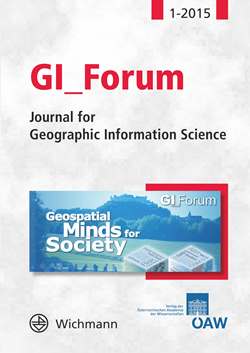 |
 |
Adrijana Car – Thomas Jekel – Josef Strobl – Gerald Griesebner (Eds.)
GI_Forum 2015, Volume 3
Journal for Geographic Information Science
Geospatial Minds for Society
Milena Kocher,
Michael Leitner
S. 30 - 40 doi: 10.1553/giscience2015s30
Verlag der Österreichischen Akademie der Wissenschaften
Abstract:
This research project deals with the implementation and evaluation of the Risk Terrain Modeling (RTM) technique, which allows localizing places, where the probability is high that a crime event will take place. RTM does not focus on previous events that happened, but on risk factors, which have an influence on the environment and can increase the probability of the risk that a crime will be committed. RTM is a recently developed approach, that has not yet been tested in Austria. Using the example of the city of Salzburg, predictions are made for the crime events assault, auto theft, burglary, and robbery for 2013 and 2014. In addition, the results of 2013 are evaluated and compared. Using the RTMDx Utility software, risk factors that correlate with the crime event as well as their influence can be identified. Based on these results, the risk factors can be operationalized to risk map layers, which is done using two models developed within ArcGIS. After that, the risk map layers are combined to a final risk terrain map, which is classified and finalized according to cartographic aspects. The evaluation for the predictions of 2013 is done using the Predictive Accuracy Index (PAI), based on a model developed in ArcGIS. The results of the evaluation and the percentage of correctly predicted crime events in respect to the size of the predicted areas are shown. In sum, 27 models were calculated and predictions made, because crime events have been partly separated into seasons or sub-types. The best predictive accuracy is reached for assaults, which includes results for the seasons spring and summer and for robberies, with PAI values of 31, 23, and 18, respectively. In contrast, the predictions for burglaries and auto thefts performed rather poorly, with PAI values between two and four. Overall, the RTM technique can be applied to Austrian cities, although the accuracy of the predictions varies. Additionally, the availability and quality of the risk factor data are crucial for the accuracy of the predictions.
2015/06/25 12:39:41 Object Identifier:
0xc1aa5576 0x003249c6
Rights:https://creativecommons.org/licenses/by-nd/4.0/
The Journal for Geographic Information Science issue 1-2015 presents peer-reviewed papers
presented at the Geoinformatics
Forum (www.gi-forum.org), held in Salzburg from July 7-10,
2015. The annual GI_Forum symposium provides a platform for dialogue among geospatial minds
in an ongoing effort to support the creation of an informed GISociety.
In this issue, the following topics are addressed:
• GIScience Contributions for Society
• Learning with Geoinformation
• Earth Observation for Humanitarian Operations
• GI for Public Health
• Technical and Human Sensors
• Transportation Modelling
• Environmental GIS and Applications
|




 Home
Home Print
Print
 References
References
 Share
Share
